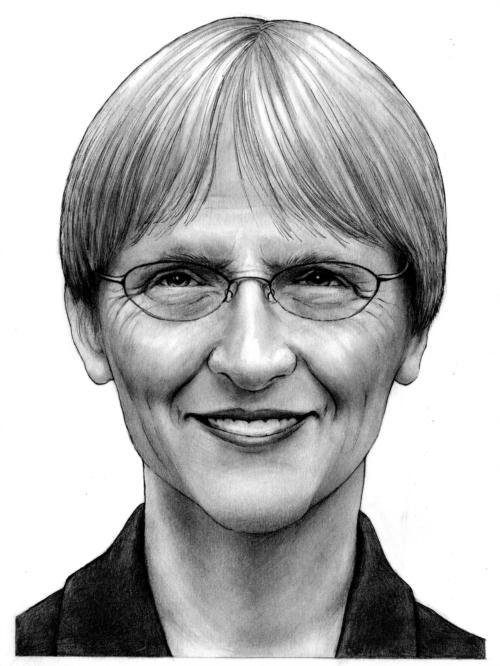
News
Harvard Alumni Email Forwarding Services to Remain Unchanged Despite Student Protest

News
Democracy Center to Close, Leaving Progressive Cambridge Groups Scrambling

News
Harvard Student Government Approves PSC Petition for Referendum on Israel Divestment

News
Cambridge City Manager Yi-An Huang ’05 Elected Co-Chair of Metropolitan Mayors Coalition

News
Cambridge Residents Slam Council Proposal to Delay Bike Lane Construction
Faust at the Helm

While it has continued to be an outstanding research and educational institution, Harvard has encountered some rough waters the last few years. The selection of Drew G. Faust to its helm promises both a welcome return to smoother sailing and, with it, opportunities for important advances, particularly in the sciences.
The questions facing universities today are extraordinarily challenging. They include the correct balance among the sciences, humanities, and social sciences; the relationship between academia and the world at large; the role of the new media and its implications for traditional academic studies; and the composition of a satisfactory liberal arts education. Harvard, in particular, faces additional challenges in the months and years ahead, such as realizing Allston’s potential for scientific and other goals, determining the proper relationship with junior faculty, balancing the roles of individuals, centers, and departments, negotiating the inclusion of interdisciplinary studies and the various schools in research and the curriculum, and rendering decision making more transparent.
One of the chief issues facing President-elect Faust will be the challenge of expanding science at Harvard while maintaining the coherence of the Faculty of Arts and Sciences and allowing both small and large research endeavors to thrive. Such vexing tasks don’t call for someone with a particular academic background; they require and deserve a trustworthy steward with proven leadership and intellectual abilities—someone who can listen and who will respond intelligently and appropriately to new circumstances.
Faust has already demonstrated these qualities as dean of the Radcliffe Institute for Advanced Study. Faust gave crucial support to Radcliffe’s recruitment of leading scientists, and also viewed the Institute as a way of attracting prominent scientists to the University. From my experiences putting together a focused research group on cosmology, I could see how Faust understood many of the distinct issues and requirements facing scientists and how she absorbed what it takes to attract the most promising scientists and provide them with an environment in which they can thrive. Faust was consistently present at Radcliffe science activities, including fellows’ talks and science lectures, and made a point of including prominent scientists in the Dean’s Lecture Series every year. She also committed resources for travel to scientists with laboratories on other campuses and worked with deans to facilitate connections between fellows and Harvard faculty, including arranging lab space at existing laboratories.
The science issues at Harvard are certainly on a different scale than those at Radcliffe. The amount of money, number of personnel, and potential connections among medical and engineering research and business are far more substantial issues at the broader level of the University. Moreover, given the rapid pace with which science changes and advances, science planning is tremendously challenging. Science advances don’t occur by fiat, but rather often arise organically and sometimes unpredictably. A further challenge is the balance that must be achieved between research projects that will attract extensive outside funding and those that focus exclusively on basic research. These questions would be difficult for anyone, and might prove to be among the biggest challenges confronting Faust.
Fortunately for Harvard, our President-elect has proven herself to be a careful decision-maker with the sound judgment it will take to face such issues—one who seeks input from a wide range of opinions. This doesn’t mean it will be easy. But such qualities will prove essential as Faust tackles the challenging scientific concerns at Harvard, chooses deans to work with on these and other important questions, and addresses other arenas such as gender and minority issues—including those in the sciences where they are far from settled. I am still amazed by the level of resistance to women that the Physics Department demonstrates, to the extent that no senior woman has yet significantly guided the departement, or even the growth of her own research area when the responsibility is shared—a lost opportunity for both the department and women.
Fortunately, as with the guidance of science, a wise person who recognizes and values deep and innovative thinking can make fair decisions in all aspects of the University. Given Harvard’s visibility, Faust’s ability to implement visionary reforms will benefit not only students and faculty in the Harvard community, but will also seed positive change in the world at large.
Lisa Randall is professor of physics. She was a 2002-2003 Radcliffe Institute fellow, where she led a research group on cosmology during the fall 2002 semester.
Want to keep up with breaking news? Subscribe to our email newsletter.
